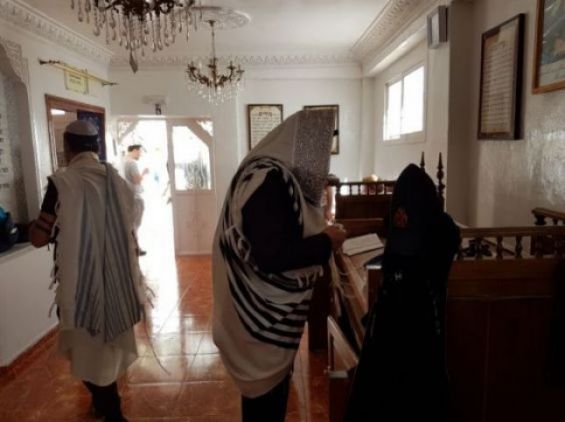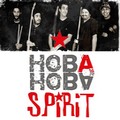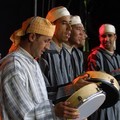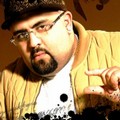Agouim is a small village in southern Morocco, known in particular for its Jewish saint, visited annually by Moroccan Jews. Rabbi David Vemoshe, known for the inhabitants of the area as David Ben Moshe or David Ou Moshe, was born in Jerusalem. Historians can’t pinpoint when he was exactly born but they all agree that the man «renowned for his extensive knowledge» traveled to Morocco, at a time when France was eyeing Morocco after colonizing Algeria.
Some people believe that he was born to «Ashkenazi parents», while others indicate that his parents were Moroccan Jews who «lived in Talpiot near Jerusalem». «Coming from a wealthy and noble family, his father was a great and generous man who had no other children», recalls Léa Benhamou in a story relayed by a blog on Jewish pilgrimage in Morocco.
An emissary to raise money for Jews in Morocco
In a dream, his father «was told that he would have a Tzadik son (righteous son) who would be called David Vemoshe after the two big names : King David and Moshe Rabnou». Léa Benhamou recalls that he was a «wise and charismatic» man who became a «great master». He was a good speaker, who was appointed to «raise money» for the poor and maintain Jewish schools.
«Despite perils, he accepted with enthusiasm (…) Accompanied by a student from the Yeshiva, he arrived in the country through the port of Melilla».
In the Kingdom, the Moroccan Jewish community was going through a difficult situation and saw in David Ou Moshe a savior. «In order to try to avoid colonization, the Moroccan government needed money and seized it from Jews, in a cruel way», recalled a blog that bears the name of the Jewish saint.

The Jewish saint succeeded in completing his mission and died in Agouim. His companion was left with the money he raised for needy Jewish families. «When (David Ou Moshe) and his assistant arrived in Agouim, to collect money for needy people in Israel, they were informed that many villagers (both Jewish and Arab) were ill and that some of them died because of some disease», the same source wrote. Rabbi David Ou Moshe then asked God to heal the inhabitants of Agouim.
«God of mercy, I who came to Agouim to beg for money to support the poor of Israel, I see around me innocent people dying of sickness. I accept to trade my life for the well-being of these villagers».
David Ou Moshe’s legends and Hiloula in Morocco
It was then that a legend was born, surrounding the death of the saint cherished by Jews and Muslims. After praying to God, the Jewish saint headed to the cemetery with his companion. The legend says that David Ou Moshe heard a voice calling his name and telling him to sacrifice his life for the little village, something that he accepted. «He sat down and told his assistant about what would happen next (…) At the same moment angels came down from the sky, and a stream gushed out of nowhere».

Rabbi David Ou Moshe washed himself and wore a white burial robe that the angels handed to him and he put himself in a grave.
The legend also tells how «two huge stones rose one after the other, settled on one another and closed the grave». Jews who lived in the village hosted his assistant and gave him the money he asked for.
Rabbi David Ou Moshe has other miracles that would have occurred after his death. In his book «Culte des saints et pelerinages judeo-musulmans au Maroc» (Maisonneuve &Larose, 1990), Issachar Ben-Ami wrote that an Amazigh leader (Amghar) took refuge near the tomb of Rabbi David Ou Moshe after he was informed that his subjects were trying to kill him. The Amghar escaped death, thanks to the Rabbi, and since then decided to dedicate an annual grant in the name of the Jewish saint.

«Women leave gold coins on the tomb of David Ou Moshe (…) nobody dares touch them during the night. These coins are believed to absorb the baraka of the saint. Women take them back the next day and wear them as necklaces», the same source said.
Muslims also respect this holy Jew, calling him «Dawid Ou Moussi», and sacrificing animals every year like the Moroccan Jews. Those living far away and unable to move to Morocco choose Palestine to make their pilgrimage.
Rabbi David Ou Moshe's Hiloula is celebrated annually on the first day of the month of Heshvan, the second month of the Jewish calendar (between October 11 and 14).





 chargement...
chargement...













